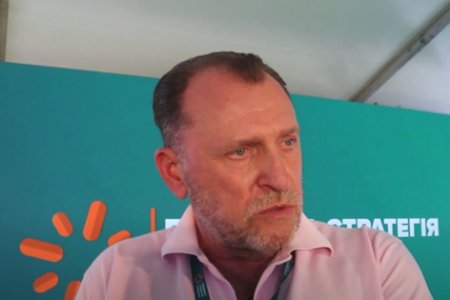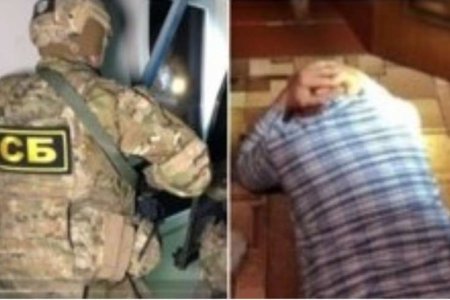
A ‘prosecutor’ in Russian-occupied Crimea has demanded a 10-sentence against Appaz Kurtamet on overtly lawless charges laid after months in which Appaz was illegally held incommunicado. The 20-year-old Crimean Tatar from Novooleksiivka in Kherson oblast is charged with ‘financing an illegal armed formation’ by sending 500 UAH [around 12 euros) to a friend who, he later learned, was defending Ukraine as part of the ‘Crimea’ volunteer battalion. During the ‘hearing’ on 28 March, the prosecution claimed that it had proven the above ‘donation’, as well as the alleged plan of the young teacher of the Crimean Tatar language to support other formations.
Russia’s FSB claim that this very small amount of money to a friend constituted “the financing of an armed formation’ under Article 208 § 1 of Russia’s criminal code. The document laying charges, signed by FSB ‘investigator’ A.V. Cheblukov, asserts that “Kurtament, knowing of the illegal activities of the Islamic [sic] battalion ‘Crimea’ passed 500 hryvnia to a member of the battalion.” Nor, this extraordinary document reads, did he inform executive bodies or in some other way prevent the activities of the Crimea Battalion.
There was absolutely no reason for Kurtamet to have informed any authorities of the 500 hryvnia sent to a friend. He did so in mainland Ukraine, where he was living, and, even had the money been knowingly intended for the Crimea Battalion, there is nothing illegal about the battalion under Ukrainian law. There was no reason for him to have informed the Russian authorities, and there is nothing to suggest that any criminal charges had been laid against the young Crimean Tatar before he was abducted by the FSB when he tried, via an official checkpoint, to enter occupied Crimea on 23 July 2022 to visit relatives. Even if one ignores the sheer illegality of Russia’s occupation of Crimea and of its pretence that the administrative border between Kherson oblast and Crimea is its ‘state border’, the situation was of astounding legal nihilism. Instead of, at most, refusing to allow Kurtamet to cross into occupied Crimea, the FSB abducted him, and held him, without any contact with independent lawyers or his family for over two and a half months. Appaz had rung his parents when he arrived at the Russian-controlled crossing at Chonhar, after which all contact with him was lost. Russia has been carrying out enforced disappearances since 2014, with the number rising exponentially after Russia’s full-scale invasion. Under those circumstances, Kurtamet’s parents were luckier than many in that his mother had, the day after her son’s disappearance, received a call from a total stranger who said that he was ringing at her son’s request to say that he had been detained at the checkpoint.
It was only learned on 10 October 2022 that ‘judge’ Viktor Krapko from the occupation ‘Kievsky district court’ in Simferopol had remanded Kurtamet in custody. It is at this same ‘court’, under ‘judge’ Oksana Karchevska, that his ‘trial’ is now coming to an end. It is unclear whether the FSB have even tried to explain the almost three months when Kurtamet was held without any legal status, and without any accountability for their treatment of him. The only likely reason for such behaviour is that the FSB were using torture or other illegal methods to fabricate a case against the young man. The official charges against him, which carry a sentence of 10-20 years were reported in November 2022. The Kremlin’s most prominent Crimean Tatar political prisoner, Nariman Dzhelyal was able to pass on, via his lawyer, that Appaz was being held in the new SIZO [or remand prison] which Russia is using to imprison many of the civilians illegally seized or abducted since the beginning of its full-scale invasion.
According to Crimean Process, whose correspondent is following the ‘trial’, Kurtamet is due to give his final address on 19 April, with the verdict expected shortly afterwards.



